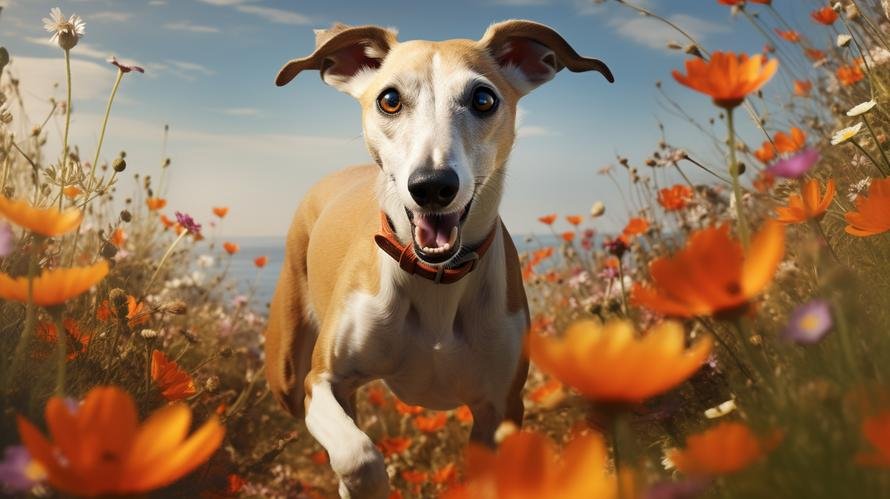Whippet. A name that rolls off the tongue delightfully, doesn’t it? This breed, often compared to a small Greyhound due to its striking, slender resemblance, has been stealing hearts faster than it races across fields. This is a dog that challenges the wind -swift, graceful, and light on its paws. But behind the elegance and agility lies a simple question that has perhaps, been itching at your curiosity – Is a Whippet aggressive?
Let’s begin by debunking folklore that’s been circulating in the dog lovers’ community. It’s been whispered like mythical lore among pet enthusiasts that the Whippet, a hound breed, is an inherently aggressive breed. Let me assure you – nothing could be further from the truth.
Whippets, first bred in England for rabbit hunting and racing, possess an aesthetic blend of art and athleticism. They bear testimony that speed and grace can, indeed, coexist. But, contrary to those whispers in the dog park, these sleek runners are far from aggressive. They are, in fact, known for their gentle nature.
But wait, doesn’t hunting and racing involve aggression, you ask? A very valid question, indeed. The Whippet does have an instinctual prey drive due to its hunting lineage. This implies that they love chasing things – squirrels, tennis balls, or unbeknownst to it, your rogue garden gnome that caught the light at an angle. However, chasing does not equate to aggression. It is a testament more to the hound’s energetic nature than an exhibition of ferocity.
Delving deeper into their character profiles, Whippets are notably very people-friendly. They thrive on companionship and seem to consistently occupy an eternal itch for human attention. This trait roots them as excellent family pets, ever ready to participate in a jovial romp or cuddle up on the couch. Their sensitivity and understanding of their human’s emotional states often make them excellent therapy dogs as well.
Does it sound a bit too good to be true? Let’s do a reality check. As with all breeds, a Whippet’s temperament can be influenced by several factors, including its attitude towards strangers, tolerance towards other animals, and adaptability to new environments. Concerning these points, Whippets generally score high on the adaptability scale but show a varying degree of tolerance towards strangers or other animals. This may sometimes be perceived as aggression. However, it predominantly stems from either curiosity or unease than innate hostility.
So, how can we ensure that your future best friend remains the gentle, loving creature it is meant to be? Good news! You already took the first step by educating yourself. Knowledge is your most potent tool against any potential behavioral issues. Early and consistent training is the next.
Socializing your Whippet from a young age will help it get used to different people, animals, and environments. Using positive reinforcement and setting consistent behavioral standards will wean any slight signs of aggression that may arise due to fear or confusion. Understanding what triggers your Whippet and helping it navigate through the same will lead you to a cooperative understanding with your pet. Proper mental and physical stimulation also go a long way in ensuring your pet’s overall happiness, thereby translating to agreeable behavior.
To sum it up, labeling a Whippet as an aggressive breed would be nothing short of a fallacy. Instead, they surprise with their sweet-natured temperament, displaying a delicate blend of docility and dynamism. They are fast but gentle; they are playful but calm. The only areas they fail to show any restraint in are kissing your face and stealing your heart, which, let’s be honest, we wouldn’t have it any other way!
In the end, remember that your pet is a reflection of its surroundings. Nurture it with love, discipline it with kindness, and you will have a companion that mirrors those traits and more.



